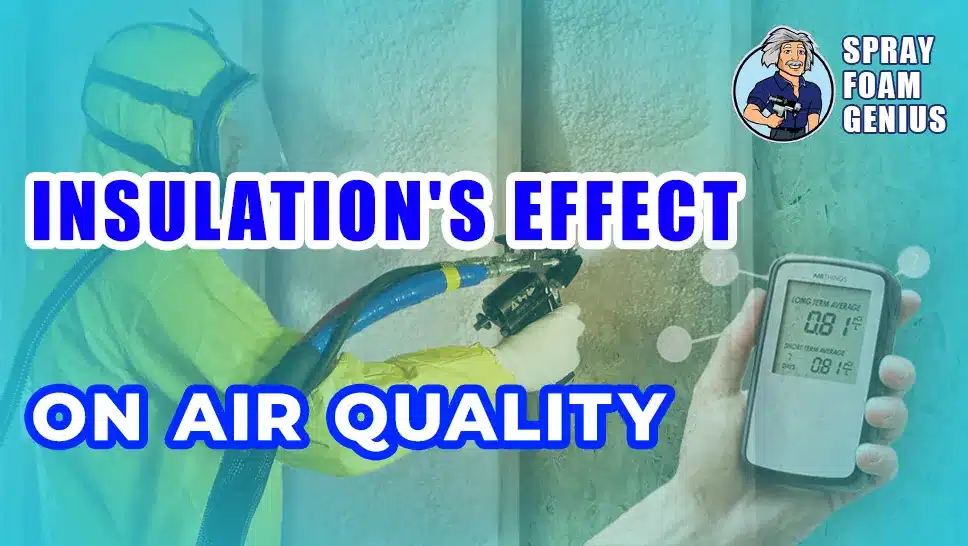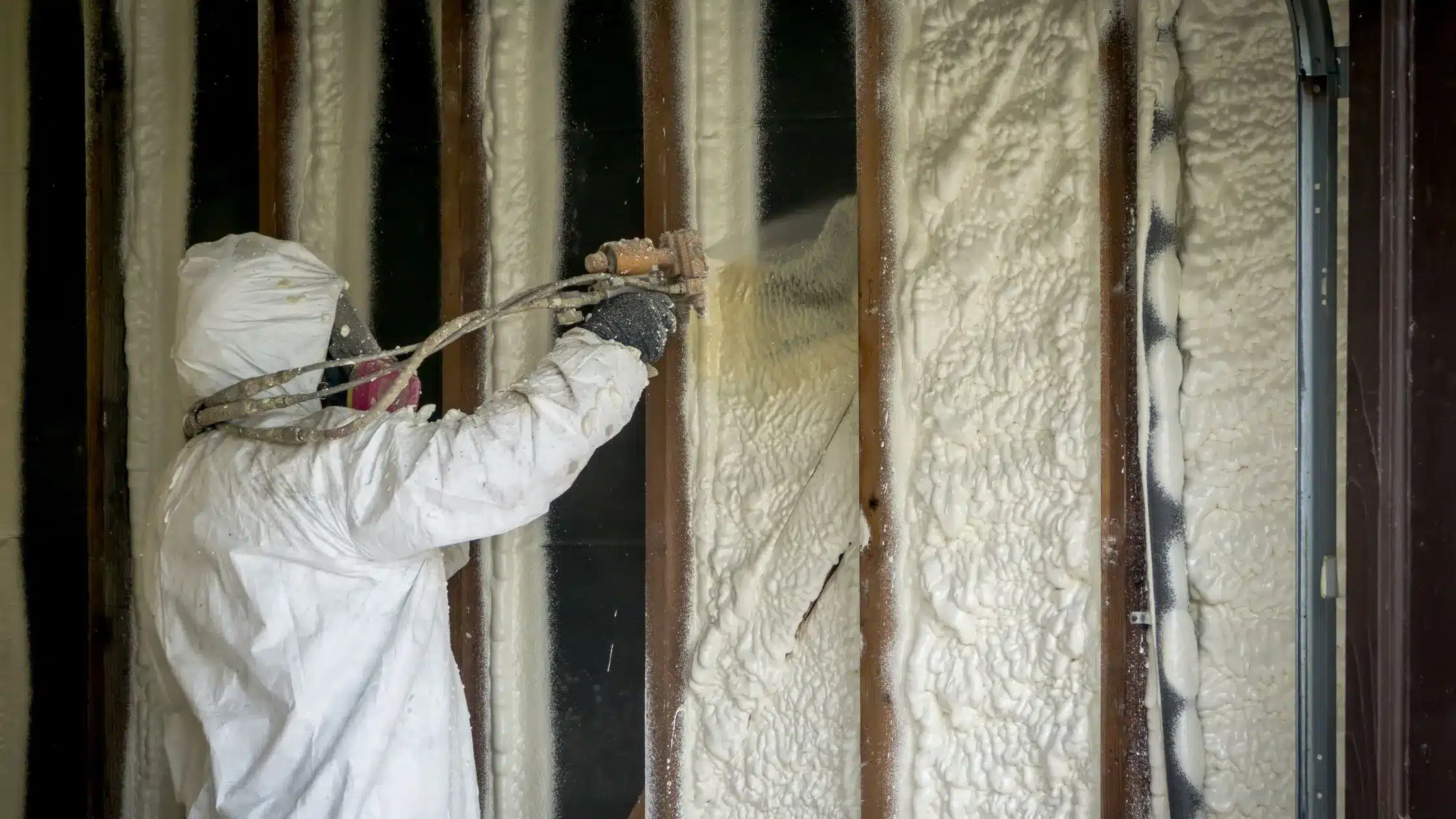
When considering home improvements, insulation often takes a backseat to more visible upgrades like kitchen remodels or new flooring. However, insulation plays a crucial role in maintaining indoor air quality (IAQ), which can significantly impact your health and comfort. At Spray Foam Genius Marketing, we specialize in elevating the online presence of spray foam insulation contractors, helping them reach customers looking to make informed decisions about their insulation needs.
In this comprehensive guide, we’ll explore how insulation affects indoor air quality, the benefits of various insulation materials, and how investing in quality insulation can improve your living environment. We’ll also provide actionable insights to help you understand the importance of proper insulation in achieving a healthier home.
What is Indoor Air Quality (IAQ)?
Indoor Air Quality (IAQ) refers to the condition of the air within and around buildings, as well as how it affects the health and comfort of the occupants. Good IAQ is essential for a healthy living environment, especially as people spend approximately 90% of their time indoors.
Key Factors Affecting IAQ
- Ventilation: The amount of fresh air coming into the home and indoor air circulation.
- Contaminants: Pollutants such as dust, mold, pet dander, and volatile organic compounds (VOCs).
- Humidity Levels: High or low humidity can affect comfort and promote the growth of mold and mildew.
- Temperature: Extreme temperatures can impact comfort and the effectiveness of ventilation systems.
How Insulation Impacts IAQ
Insulation helps maintain the temperature and comfort within your home, but its role extends beyond just keeping you warm in winter and cool in summer. The right insulation can positively affect IAQ in several ways:
1. Reducing Air Leaks
Air leaks in a home allow outside pollutants to enter and indoor air to escape. Insulation helps seal gaps and cracks in walls, floors, and ceilings, reducing the amount of unconditioned air that infiltrates your home. This creates a more stable indoor environment and lessens the burden on your HVAC system, which can improve air quality.
2. Controlling Humidity
Certain types of insulation, such as spray foam, act as a barrier to moisture. By preventing moisture from entering wall cavities and other spaces, insulation helps control indoor humidity levels. This is crucial in preventing mold growth, which can negatively impact IAQ.
3. Improving Energy Efficiency
Effective insulation reduces the amount of energy required to heat or cool your home. This leads to fewer emissions from heating and cooling systems, indirectly improving IAQ by reducing the presence of pollutants like carbon monoxide and nitrogen dioxide that can be produced by these systems.
4. Preventing Condensation
Condensation occurs when warm, moist air comes into contact with cold surfaces. Insulation helps to maintain consistent surface temperatures, reducing the likelihood of condensation and associated mold problems.
Types of Insulation and Their Impact on IAQ
Different insulation materials offer varying benefits and drawbacks in terms of IAQ. Here’s an overview of the most common types:
Fiberglass Insulation
Fiberglass insulation is a prevalent choice for homeowners due to its efficiency in reducing heat transfer. Made from tiny glass fibers, it effectively keeps homes warm in winter and cool in summer. However, fiberglass insulation has some drawbacks. It can release airborne particles and dust, which may irritate the respiratory system if not properly contained.
Pros: Fiberglass insulation is known for its good thermal performance, fire resistance, and economical cost.
Cons: The main drawbacks include the potential for releasing fibers into the air, which can be an irritant, and the need for careful handling to avoid skin irritation.
Foam Board Insulation
Foam board insulation, composed of rigid foam, is highly effective at providing thermal insulation. It is commonly used in areas such as basement walls and exterior walls due to its excellent insulating properties.
Pros: Foam board insulation boasts a high R-value per inch of thickness and is resistant to moisture, making it a reliable choice for many applications.
Cons: One downside is that it can off-gas volatile organic compounds (VOCs). Additionally, proper installation is crucial to avoid gaps that could reduce its effectiveness.
Spray Foam Insulation
Spray foam insulation is a versatile option that expands upon application, filling gaps and cracks to create an airtight seal. This makes it highly effective in reducing air leaks and improving energy efficiency.
Pros: It offers excellent air sealing properties, is moisture-resistant, and helps reduce noise.
Cons: Spray foam insulation generally comes with a higher initial cost and requires professional installation to ensure optimal performance.
Cellulose Insulation
Cellulose insulation, made from recycled paper products, is a sustainable choice that is treated for fire resistance. It is often used in wall cavities and attics and is appreciated for its eco-friendly credentials.
Pros: Cellulose insulation is environmentally friendly and provides a good air barrier.
Cons: It can settle over time, which may necessitate additional treatments for moisture resistance to maintain its effectiveness.
Benefits of Proper Insulation for IAQ
Investing in quality insulation not only enhances energy efficiency but also offers several health benefits:
1. Reduction in Allergens
Proper insulation minimizes the entry of outdoor allergens such as pollen and dust. This can be particularly beneficial for individuals with allergies or asthma.
2. Prevention of Mold and Mildew
By controlling moisture levels, insulation helps prevent the growth of mold and mildew, which can cause respiratory issues and other health problems.
3. Enhanced Comfort
Stable indoor temperatures and reduced drafts contribute to a more comfortable living environment, which can positively affect overall well-being.
4. Improved Air Quality
By reducing the workload on HVAC systems and controlling moisture, insulation helps maintain better IAQ, leading to a healthier home environment.
Choosing the Right Insulation for Your Home

Selecting the right insulation involves considering several factors:
1. Climate
The type of insulation best suited for your home depends on your local climate. For colder regions, higher R-values are necessary to keep heat in, while milder climates may require less insulation.
2. Home Structure
Different insulation types are suitable for various parts of the home. For example, spray foam is ideal for sealing gaps, while fiberglass might be better for attic spaces.
3. Budget
While higher-quality insulation like spray foam may have a higher upfront cost, the long-term savings in energy and health benefits can make it a worthwhile investment.
4. Professional Installation
Proper installation is crucial for maximizing the benefits of insulation. Work with a qualified contractor to ensure that your insulation is installed correctly and effectively.
DIY vs. Professional Installation
When considering insulation installation, you have the option of tackling the project yourself or hiring a professional. Each approach has its own set of advantages and disadvantages.
DIY Installation
Opting for a DIY approach can be appealing for its lower upfront cost and the flexibility it offers in terms of timing. You can schedule the work according to your availability and potentially save money on labor. However, there are significant risks involved with DIY insulation projects. Improper installation can lead to gaps and inefficiencies, which may reduce the overall effectiveness of the insulation. Additionally, there is a chance that the work may not meet local building codes, potentially leading to further issues down the line.
Professional Installation
On the other hand, professional installation ensures that the insulation is applied correctly and adheres to local building codes. Professionals bring expertise and experience to the job, which helps in achieving optimal performance and longevity of the insulation. Many professional services also offer warranties, providing added peace of mind regarding the quality of the installation. However, this approach typically involves a higher initial cost compared to DIY options. The investment in professional installation can be worthwhile for the assurance of a job well done and the potential long-term benefits.
Common Myths About Insulation and IAQ
Myth 1: Insulation Causes Indoor Air Quality Problems
Some believe that insulation can trap pollutants indoors, but in reality, proper insulation helps reduce air leaks and moisture, which improves IAQ.
Myth 2: All Insulation Types are the Same
Different insulation materials offer various benefits and potential drawbacks. Understanding these differences helps you make an informed choice.
Myth 3: Insulation is Only About Temperature Control
While temperature control is a major benefit, insulation also plays a critical role in managing humidity and reducing contaminants.
Transform Your Business Today
The impact of insulation on indoor air quality is significant and multifaceted. By reducing air leaks, controlling humidity, and improving energy efficiency, proper insulation contributes to a healthier and more comfortable living environment. At Spray Foam Genius Marketing, we understand the importance of quality insulation and offer expert services to help spray foam insulation contractors reach customers who value IAQ and overall home health.
If you’re considering upgrading your insulation or want to learn more about how it can benefit your home’s air quality, feel free to contact us. Our team is dedicated to helping you make informed decisions about your insulation needs.
Contact Us Today
- Phone: 877-840-FOAM for USA and 844-741-FOAM for Canada
- Website: Spray Foam Genius Marketing
- Email: [email protected]
- How to Use Pinterest to Market Your Spray Foam Insulation Services - December 27, 2023
- How to Use LinkedIn to Grow Your Spray Foam Insulation Business - December 23, 2023
- How to Use Instagram to Showcase Your Spray Foam Insulation Projects - December 16, 2023

